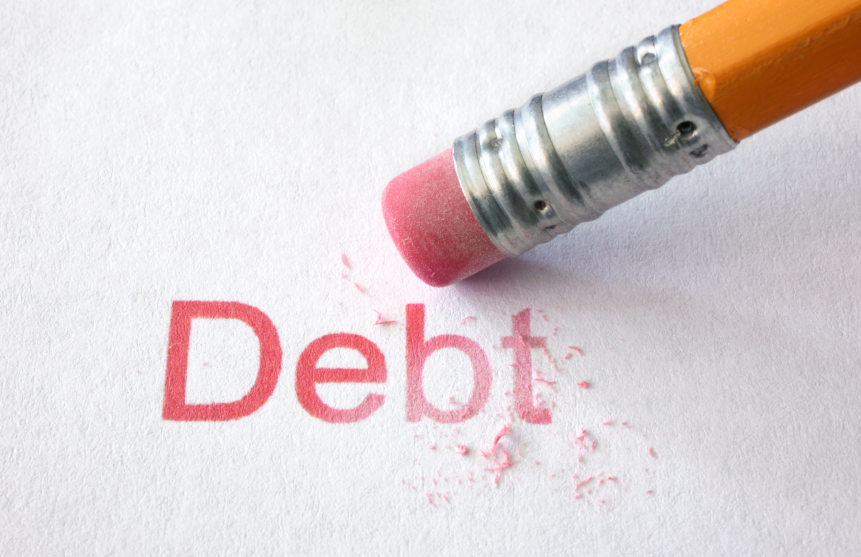Credit Cards & Loans
How to get out of debt in 2020

Guest Author:
YourMoney.comClearing debt is never easy, but these methods may give you just the boost you need.
Like it or not, debt has become a normal part of adult life. While we all have to borrow money sometimes, it is better not to let it become a day-to-day feature of your finances. Getting your balance back to zero as quickly as possible is important to your long-term financial health.
The first step in getting rid of debt is always to change your spending habits. If you spend more than you earn, cut up your credit cards. If you’re paying off a loan, try to cut your outgoings and put the spare money towards repayments. Getting serious about paying off debt can mean unwelcome changes to your lifestyle, but it may be better than the grinding burden of debt repayment. To get that warm and fuzzy feeling that you are taking steps to address your debt problem, try one of these three methods.
The snowball method
Popularised by personal finance expert David Ramsey, the snowball method is a great debt reduction method for people who have trouble sticking to their repayment schedule.
This method recommends that you make a list of everything you owe and pay off the lowest balance first. Don’t even think about interest rates – this is all about getting the smallest chunk of your debt paid off as quickly as possible. Stop all but the minimum payments on your other credit cards or loans and throw every extra cent you can spare at that balance.
Once your smallest balance is paid off, move on to the second smallest. Continue this way until all of your debt is cleared.

Wellness and wellbeing holidays: Travel insurance is essential for your peace of mind
Out of the pandemic lockdowns, there’s a greater emphasis on wellbeing and wellness, with
Sponsored by Post Office
This method is more expensive in the long run – your larger balances will still be accruing interest – but has the benefit of building momentum. Every time you pay off a balance, however small, you’ll experience an emotional payoff.
Ramsey explains: “What I have learned is that personal finance is 20 per cent knowledge and 80 per cent behaviour. You need some quick wins in order to stay pumped enough to get out of debt completely.”
The avalanche method
If you don’t have trouble staying motivated and are troubled by the interest you’re paying on your debt, the avalanche method may be right for you. You start this process the same way you would start the snowball method: by listing everything you owe. But, rather than ranking debts by size, now rank them highest to lowest by interest rate.
The goal of this method is to pay off your most expensive debt first. With that in mind, stop paying everything but the minimum balance on your lower-interest debt and attack your high-interest debt aggressively. Keep going in order of interest rate until your balances are back to zero.
With this method you won’t get the easy mental wins that come with paying off balance after balance in short succession. Depending on how much you owe, you may be chipping away for months at that first bill. But you will have the satisfaction of knowing that you’re wasting as little money as possible on interest.
Declare a debt emergency
This controversial debt reduction method is touted by American personal finance blogger Mr. Money Moustache (stay with us here). The principle is this: Most people go through their lives accepting debt as a mild annoyance when in fact it should be treated as an emergency.
He suggests that if you borrow for anything other than your primary residence or a profitable investment, the next bit of cash you have should go to paying that back.
The premise here is to declare war on your debt, cutting your living expenses down to the bare minimum and putting every penny you earn towards paying off your debt (and the expensive interest charges that come with it). No more drinks with friends, no more dinners out and no more clothes shopping until you’re back on level ground.
This method isn’t recommended for large debts like student loans and mortgages. Rather, it’s a radical way to get out of consumer debt – the money we borrow to support lifestyle choices we can’t really afford, like luxury holidays, nights out and online shopping binges. While it may seem like debt enables you to have these things, this blogger argues, in fact it’s robbing you of them.
He writes: “Every dollar you pay in interest to the credit card company is stealing dollars away that you could be using for more luxury purchases for yourself. Those dollars are gone forever, and you’ve permanently lowered your ability to consume luxury products, for the rest of your life.”
Remember that there is no ‘correct’ method. Debt is highly personal, and so is clearing it. The important thing is to have a plan, stick with it, and reap the rewards of a healthy financial life.